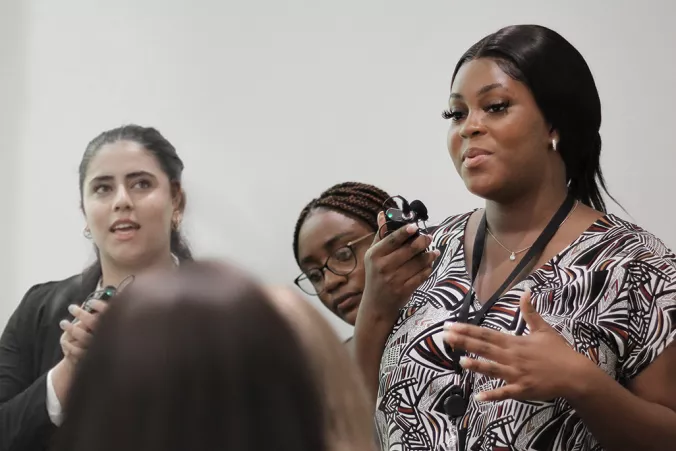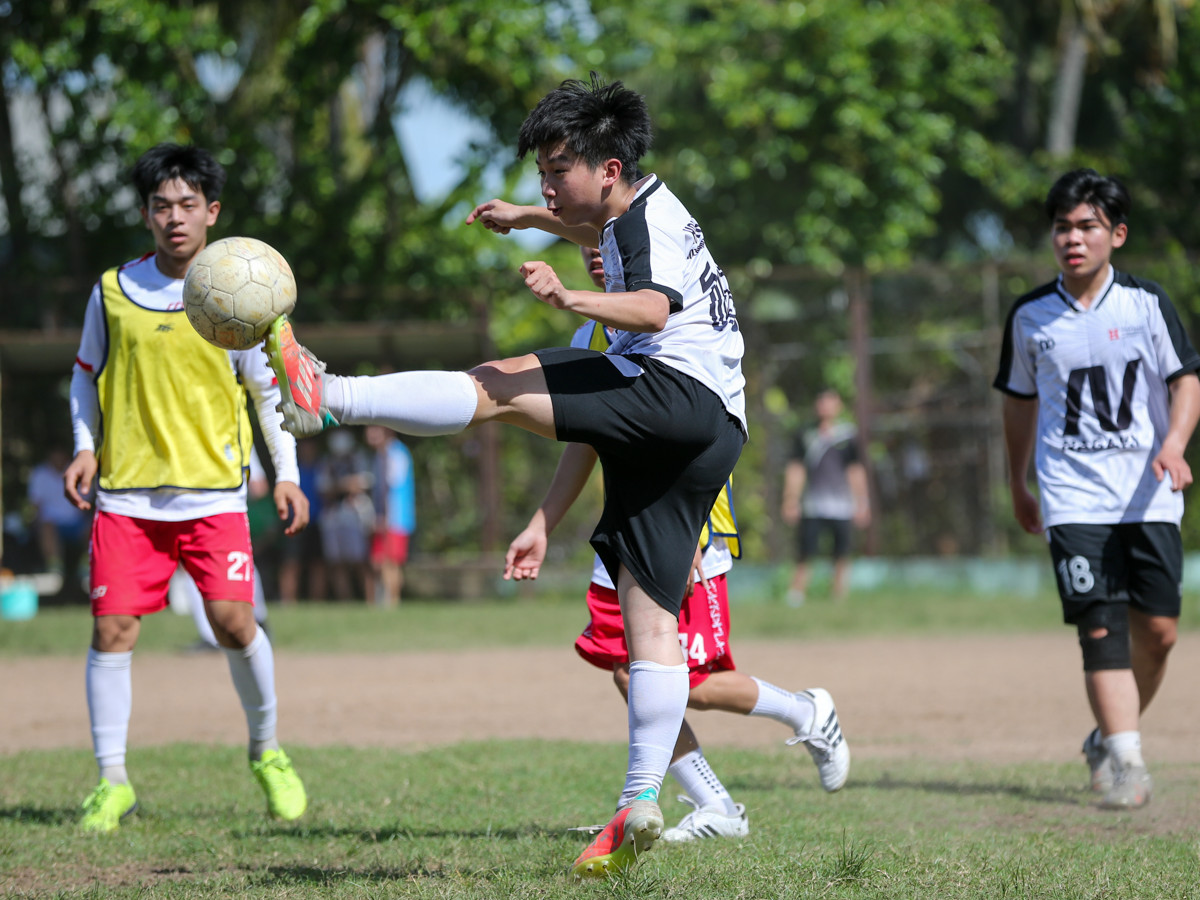Independent Office For Police Conduct (IOPC) Complaint To Ofcom Over Chris Kaba's Panorama Coverage

Table of Contents
The IOPC's Complaint Against Panorama
The IOPC's complaint to Ofcom centers on allegations of inaccuracies and bias in the BBC's Panorama broadcast concerning the Chris Kaba shooting. The IOPC investigation into the shooting itself is separate but clearly informed this decision. The IOPC's specific concerns regarding the Panorama broadcast include accusations of:
- Factual inaccuracies: The IOPC alleges that the Panorama program contained statements and information that were demonstrably untrue or misleading, potentially misrepresenting key aspects of the investigation and the events leading up to Chris Kaba's death.
- Biased reporting: The complaint asserts that the program presented a skewed perspective, favouring certain narratives while neglecting others, thereby failing to provide a balanced and impartial account of the incident and subsequent investigations.
- Insufficient context: The IOPC argues that Panorama lacked sufficient context and background information, potentially leading to misinterpretations and an incomplete understanding of the complex circumstances surrounding the shooting.
- Impact on public perception: The IOPC expressed concern that the potentially flawed reporting could unfairly influence public opinion and undermine the ongoing IOPC investigation into the police conduct.
The IOPC's action reflects its commitment to ensuring accuracy and fairness in media representations of police misconduct cases. The outcome of Ofcom's investigation could set a precedent for future media coverage of similar incidents. The IOPC is seeking a thorough review of the Panorama broadcast and expects Ofcom to take appropriate action if the allegations of breaches in broadcasting standards are substantiated.
The Chris Kaba Case and Public Outcry
The fatal shooting of Chris Kaba, a 24-year-old unarmed Black man, by a Metropolitan Police officer on September 5th, 2022, sparked widespread outrage and protests. The incident, which occurred following a police pursuit, immediately ignited public concern about police brutality and racial bias within the Metropolitan Police force.
- Circumstances of the shooting: Chris Kaba was shot dead in Streatham Hill, South London, after his vehicle was boxed in by police vehicles. The circumstances surrounding the shooting remain a subject of intense scrutiny and ongoing investigation.
- Public reaction and protests: The shooting led to immediate and widespread public outcry, with protests taking place across London and other parts of the UK. The Chris Kaba case became a symbol of broader concerns about police accountability and racial justice.
- Criticisms of the Metropolitan Police: The initial response of the Metropolitan Police to the incident faced significant criticism for a perceived lack of transparency and for initially downplaying the seriousness of the event. The subsequent IOPC investigation further highlighted issues within the force’s handling of the situation.
Ofcom's Role and Potential Outcomes
Ofcom, the UK's communications regulator, holds significant power to oversee and regulate broadcasting standards. Its investigation into the IOPC complaint will assess whether the Panorama program breached its Broadcasting Code.
- Ofcom's investigation process: Ofcom will examine the evidence presented by the IOPC, analyze the Panorama broadcast, and potentially interview relevant individuals involved in the program's production.
- Potential sanctions: Depending on its findings, Ofcom could impose various sanctions on the BBC, ranging from a formal reprimand to a significant financial penalty. In severe cases, Ofcom may even impose programme restrictions.
- Implications for future reporting: The outcome of Ofcom’s investigation will have a far-reaching impact on how the media reports on police conduct in the future. A strong finding against the BBC could lead to greater media self-regulation and improved accuracy in reporting sensitive events.
The Importance of Media Accountability
Responsible journalism is paramount, especially when covering sensitive cases involving allegations of police misconduct. The media plays a vital role in informing the public, but it also carries a significant responsibility to ensure its reporting is accurate, impartial, and ethically sound.
- Accurate and impartial reporting: In cases like Chris Kaba's, maintaining accuracy and avoiding bias is crucial to prevent misrepresentation and the potential for further harm to the public's perception of both the police and the media.
- Public trust: Inaccurate or biased reporting can severely damage public trust in both law enforcement agencies and the media. Building and maintaining this trust requires a commitment to ethical standards and transparency in reporting.
- Ethical responsibilities: Media organizations must adhere to strict ethical guidelines when covering such sensitive events. This includes ensuring fairness, verifying information, and providing a balanced account of all perspectives.
Conclusion
The IOPC's unprecedented complaint against the BBC's Panorama program underscores the critical need for accountability in media coverage of police misconduct cases. The outcome of Ofcom's investigation will have significant implications for both the BBC and the broader media landscape, impacting how such sensitive events are reported in the future. The Chris Kaba case serves as a stark reminder of the importance of fair and accurate reporting to maintain public trust. The IOPC complaint itself highlights the crucial need for responsible journalism and robust media regulation.
Call to Action: Stay informed about the IOPC's complaint to Ofcom and the subsequent investigation. Follow updates on the Chris Kaba case and the ongoing conversation surrounding police accountability and responsible media coverage. Understanding the intricacies of the IOPC complaint and Ofcom's role is crucial in demanding greater transparency and accountability from both law enforcement and the media. Let's work towards a future where accurate and responsible reporting on sensitive cases involving police misconduct is the norm, not the exception.

Featured Posts
-
 Chinas Automotive Landscape Understanding The Hurdles Faced By Bmw Porsche And Competitors
Apr 30, 2025
Chinas Automotive Landscape Understanding The Hurdles Faced By Bmw Porsche And Competitors
Apr 30, 2025 -
 Esg Lca
Apr 30, 2025
Esg Lca
Apr 30, 2025 -
 Neal Pionk Injury Updates Contract News And More
Apr 30, 2025
Neal Pionk Injury Updates Contract News And More
Apr 30, 2025 -
 Top 10 Romance Dramas Packed With Plot Twists
Apr 30, 2025
Top 10 Romance Dramas Packed With Plot Twists
Apr 30, 2025 -
 Ket Qua Va Lich Thi Dau Giai Bong Da Thanh Nien Sinh Vien Quoc Te 2025
Apr 30, 2025
Ket Qua Va Lich Thi Dau Giai Bong Da Thanh Nien Sinh Vien Quoc Te 2025
Apr 30, 2025
